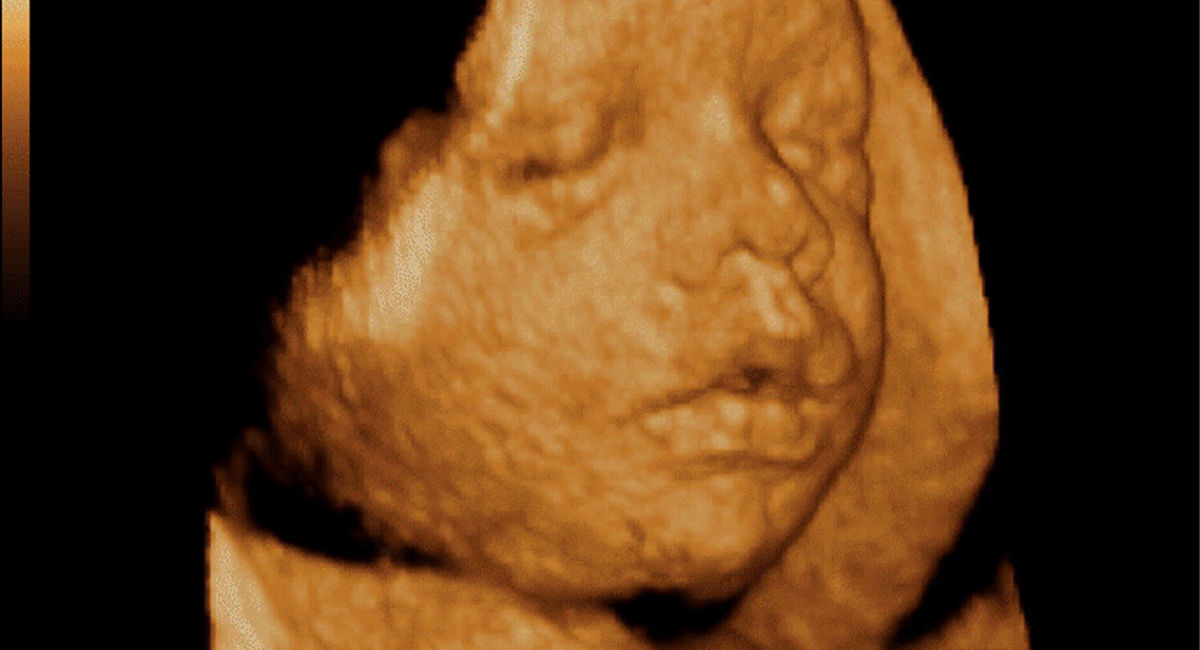One of the most common lies perpetuated by pro-abortion apologists is that abortions carried out late in pregnancy are necessary and rare. This appeals to the emotions of compassionate Americans who want to do right by women experiencing ‘heartbreaking decisions.’ But intentionally killing a preborn child is something that never needs to be presented as an option by doctors, nor should it be made by parents.
Myth #1: Abortions committed late in pregnancy are medically necessary.
The Truth: One of the deadliest misconceptions about abortion late in pregnancy is that it is only carried out for ‘dire medical reasons.’
The media and abortion industry contribute to this false idea. Jen Villavicencio of the pro-abortion American College of Obstetricians and Gynecologists claimed, “When abortions occur in the third trimester, most often something has gone terribly wrong in the pregnant person’s life or pregnancy.” Use of the terms “generally” and “terribly wrong” are vague, and are meant to appeal to emotion, make it seem as if killing innocent preborn children old enough to survive outside the womb is somehow a ‘compassionate’ act.
Similarly, abortionist Dr. Rachel Pilliod falsely told MPR News, “Generally what we’re talking about, with what falls under the umbrella of a ‘later abortion,’ is actually ending a wanted, or very desired pregnancy.”
These entirely non-factual claims are intended to trigger an emotional reaction in people so that they will more readily support abortion on demand through all nine months of pregnancy.
A study from the pro-abortion group ANSIRH found that women seeking third-trimester abortions do so for reasons that “are not so different from… abortions before the third trimester….” The study noted that women have abortions in the third trimester for multiple reasons, including the fact they didn’t know they were pregnant, they had difficulty arranging abortions, or the baby had a health problem or disability. (None of the abortions in this study were committed due to the mother’s health being at risk.)
A 2016 report from the pro-abortion Guttmacher Institute revealed that at least 75% of abortions at 13 weeks and beyond were elective — meaning the mother chose to abort her baby after the first trimester, without any indication of a medical condition or emergency.
The flawed, pro-abortion Turnaway Study even claimed that from 2008-2010, about half of the women who had abortions after 20 weeks said they did so for elective reasons, including that they didn’t realize they were pregnant, couldn’t decide whether they should abort, couldn’t figure out where to go or how to get to the facility, or had trouble coming up with the money.
Myth #2: Late abortions only happen when the baby is going to die anyway.
The Truth: Babies are killed because of health conditions while they are still in the womb, even though doctors can’t always predict the outcome for a baby still in utero. They can make educated guesses, but those guesses can be wrong.
Abortion in the case of a devastating diagnosis is deemed acceptable by able-bodied society members who can’t imagine life being worth living with a disability or health condition. It’s touted as ‘merciful’ and ‘compassionate’ to kill the baby instead. This immoral, discriminatory, and eugenic claim was brought to the forefront when Texas woman Kate Cox sued the state for the right to kill her preborn daughter Chloe in a dismemberment D&E abortion because she had Trisomy 18. Cox felt killing her by dismemberment in the womb “felt compassionate.” She said, “[W]e didn’t want her to suffer. We made the most compassionate decision…”
Kate Cox was held up as a hero of abortion rights, meanwhile, dedicated parents of children with Trisomy 18 were outraged.
Women who choose abortion for their babies following a poor prenatal diagnosis are at a greater risk of emotional distress than those who choose to carry their babies to term. According to Perinatal Hospice and Palliative Care, which provides resources for parents who are facing such a diagnosis, significant research shows that women who have an abortion following a fetal diagnosis suffer “physical and emotional pain, with psychosocial and reproductive consequences.” Additional studies found that aborting a ‘wanted’ baby due to a diagnosis can be a “traumatic event … which entails the risk of severe and complicated grieving.”
No research supports the idea that having an abortion following a prenatal diagnosis is psychologically better for a woman than carrying to term. In fact, one study determined, “Couples experienced selective termination as traumatic … [T]he women ultimately felt as if they were betraying themselves and their babies.”
A separate study found that among women who chose to carry their child with a poor prenatal diagnosis to term, “Absence of regret was articulated in 97.5 percent of participants. Parents valued the baby as a part of their family and had opportunities to love, hold, meet, and cherish their child. Participants treasured the time together before and after the birth.”
Myth #3: Abortions late in pregnancy are rare.
The Truth: “Rare” is a relative term. Thousands of children are aborted after 21 weeks every year.
When examining data compiled by both the Guttmacher Institute and the Centers for Disease Control and Prevention (CDC), Live Action research fellow Carole Novielli reported that abortions committed after 21 weeks are estimated to have been committed on 10,370 preborn babies in 2023. That’s a national death toll of 28 preborn babies older than 21 weeks every single day.
Children born prematurely at 21 weeks are capable of surviving with medical assistance, yet it is completely legal to kill them in the womb for any reason in nine states and Washington, D.C.
Myth #4: Abortion ‘up to birth’ doesn’t happen.
The Truth: Despite the pro-abortion media’s apparent skepticism, abortion is legal without restriction in nine states.
Warning: Images below may be disturbing to readers.
Alaska, Vermont, Oregon, New Mexico, Colorado, Minnesota, Michigan, Maryland, and New Jersey — as well as Washington, D.C. — have no restrictions on how late in pregnancy abortion can be carried out or why it can be carried out. The DuPont Clinic in D.C. openly advertises abortion “up to 31 weeks and 6 days.”
“If you are 26 weeks or later into your pregnancy, we can still see you, regardless of your medical history, background, or fetal indications. We do not require any particular ‘reason’ to be seen here – if you would like to terminate your pregnancy, we support you in that decision,” the website states. (emphasis added)

Photos by Mark Story. Babies Christopher X and Harriett were found in a medical waste bin outside of a D.C. abortion business.
In Colorado, abortionist Warren Hern commits late abortions for any reason, and though his website lists “Third Trimester Abortion… Over 28 weeks,” he acknowledges that he is willing to commit late abortions past 30 weeks of pregnancy.
Partners in Abortion Care in Maryland states it commits “induction abortions with IV sedation beyond 26 weeks of pregnancy,” touting the business as “the only women-owned and operated abortion clinic providing abortions in all trimesters.”
Abortion is being committed in areas of the United States for any reason and without limits. As previously noted, abortions after 21 weeks happen an estimated 12,100 times every single year.
Myth #5: ‘Late-term abortion’ is not a medical term.
The Truth: The term “late-term abortion” has been used by the abortion industry and pro-abortion media for years.
In an effort to diminish the facts about late abortion, pro-abortion media began claiming in recent years that “late-term abortion” isn’t proper medical terminology, and that pro-lifers invented the supposedly ‘medically inaccurate’ term in order to “distort the truth.”
This is false. According to the Washington Examiner, the term “has been widely used in medical journals and within medical groups,” and is even used by abortionists themselves on their own websites.
Myth #6: Late abortions are less dangerous than childbirth.
The Truth: The study used to claim that abortion is safer than childbirth is unreliable, and its results have never been reproduced.
A wealth of media outlets have cited a 2012 pro-abortion study that claims abortion is up to 14 times safer than childbirth. However, as Dr. John Ferrer pointed out in his article for the Equal Rights Institute, no other study has ever been able to confirm this finding, and the 2012 study is unreliable.
“It’s a pretty radical claim to say that abortion is 14 times safer than childbirth,” Ferrer said. “It’s so radical, there’s only one source that claims they can prove it. It’s a journal article from abortion-choice researchers Elizabeth Raymond and David Grimes (hereafter, ‘RG study’).” Ferrer notes that Grimes is “one of the biggest names in the pro-choice lobby.”
He explained, “There is a reason, however, why no other study claims to demonstrate … this ’14 times safer’ claim. They can’t reproduce the results, so no other study has been able to corroborate that enormous claim. The RG study might be the most famous, and most widely cited paper on the subject, but despite its popularity, it’s pretty much useless.”
The study relied on abortion numbers from the CDC and Guttmacher Institute, which didn’t include stats from Maryland, Washington, D.C., or New Hampshire, or information from two states with the highest abortion numbers: California and New York. These areas have not reported abortion statistics (including abortion-related deaths) to the CDC in years, but do report all childbirths and related maternal deaths.
There is no federal law requiring the accurate reporting of abortions or abortion complications.
Priscilla K. Coleman, Ph.D., Professor of Human Development and Family Studies at Bowling Green State University, explained:
[T]he data reported by abortion clinics to state health departments and ultimately to the CDC significantly under-represents abortion morbidity and mortality for several reasons:
1) abortion reporting is not required by federal law and many states do not report abortion-related deaths to the CDC;
2) deaths due to medical and surgical treatments are reported under the complication of the procedure… rather than the treatment…
3) most women leave abortion clinics within hours of the procedure and go to hospital emergency rooms if there are complications that may result in death;
4) suicide deaths are rarely, if ever, linked back to abortion in state reporting death rates;
5) an abortion experience can lead to physical and/or psychological disturbances that increase the likelihood of dying years after the abortion, and these indirect abortion-related deaths are not captured at all.
The emotion-driven arguments about late (or late-term) abortions are based on lies, and are used to persuade Americans into supporting abortion as a human right rather than disavowing it for the horrific human rights abuse that it is.
Editor’s Note 9/4/2024: This article was updated with more recent data figures.







